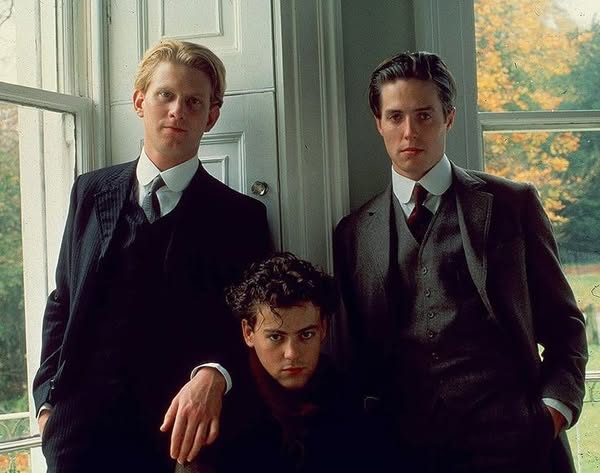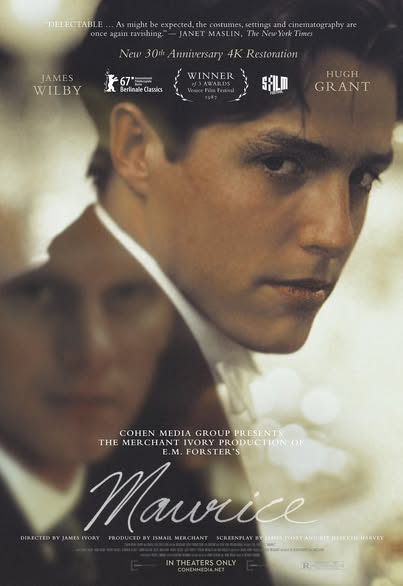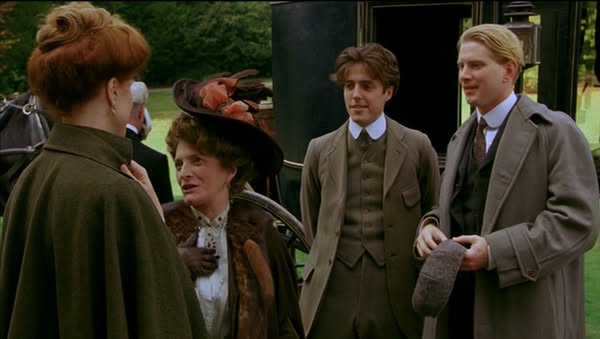Maurice (1987)

Maurice (1987) is a poignant film directed by James Ivory, adapted from E.M. Forster’s novel of the same name. Set in early 20th-century England, the film explores themes of love, identity, and societal constraints through the lens of Maurice Hall, portrayed by James Wilby.
The narrative follows Maurice as he navigates the complex landscape of his sexuality in a time when homosexuality was both taboo and criminalized. The story begins during Maurice’s time at Cambridge University, where he forms a deep connection with Clive Durham, played by Hugh Grant. Their relationship initially blossoms under the guise of friendship, but societal pressures and Clive’s eventual decision to conform to societal expectations lead to heartbreak and disillusionment for Maurice.

The film beautifully captures the emotional turmoil that Maurice experiences as he grapples with his identity and desires in a repressive society. As he confronts the limitations imposed by social norms, Maurice embarks on a journey of self-discovery, seeking love and acceptance in a world that offers little of either. The performances are heartfelt and nuanced, with Wilby delivering a powerful portrayal of a man caught between passion and societal expectation.

Visually, Maurice is stunning, featuring lush cinematography that highlights the beauty of the English countryside and the elegance of Edwardian life. The film’s production design and costuming evoke a sense of time and place, immersing viewers in the era’s social complexities. The score, composed by Richard Robbins, enhances the emotional depth of the narrative, underscoring moments of longing and despair.
As Maurice’s story unfolds, he ultimately seeks solace in a relationship with Alec Scudder, played by Rupert Graves. This relationship represents a departure from the constraints of his earlier experiences, offering a glimpse of hope and possibility. The film’s conclusion is both bittersweet and uplifting, suggesting that true love and acceptance can be found even in the face of societal prejudice.

Overall, Maurice is a significant work that addresses the struggles of LGBTQ+ individuals in a time of repression and misunderstanding. Through its rich storytelling and emotional depth, the film invites viewers to reflect on the importance of love, authenticity, and the courage to live one’s truth. It stands as a timeless exploration of personal freedom and the quest for belonging, resonating deeply with audiences across generations.











